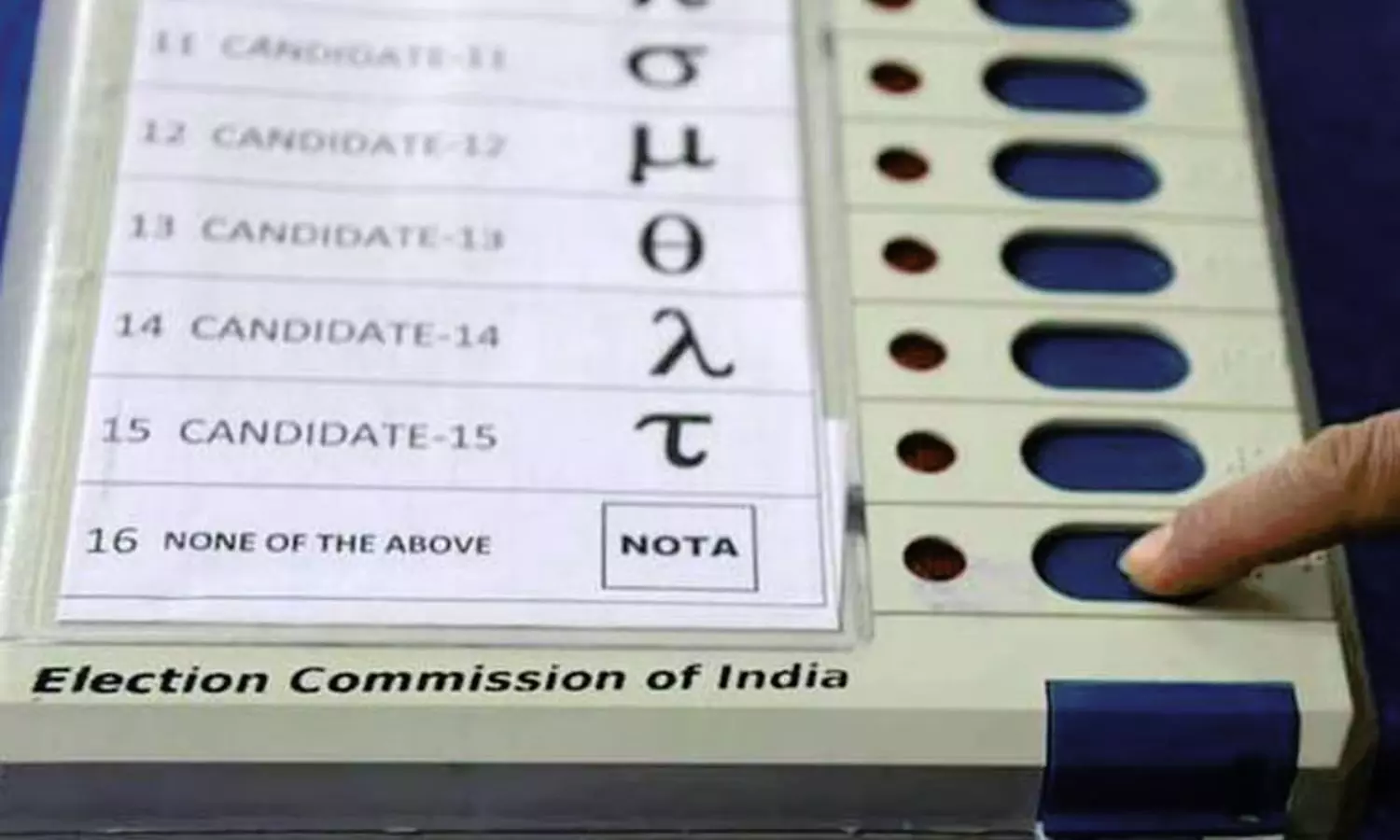Supreme Court to Assess Fictional Candidate Status for NOTA
Supreme Court to consider treating NOTA as a fictional candidate, potentially impacting Indian electoral dynamics. Intriguing proposal by Shiv Khera.
image for illustrative purpose

The Supreme Court has agreed to consider an intriguing proposal put forth by motivational speaker Shiv Khera. He suggests that the NOTA (None of the Above) option on Electronic Voting Machines should be treated as a fictional candidate. If NOTA receives the highest votes, all other candidates should be barred from contesting elections for five years.
Initially hesitant to address Khera's Public Interest Litigation, the bench led by Chief Justice DY Chandrachud eventually agreed to hear it. This decision was influenced by a case where a BJP candidate won in Surat because other contenders withdrew. Khera's counsel argued that if the BJP nominee had faced NOTA as a fictional candidate, it would have accurately reflected the people's choice.
The Supreme Court issued a notice to the Election Commission, seeking its response to the petition. Khera pointed out that in 2018, state election commissions in Haryana and Maharashtra had treated NOTA as a fictional candidate, stating that if it received more votes than other candidates, the election would be declared void. The election process is under scrutiny as the court examines the treatment of NOTA in previous elections.
Khera's petition, filed through advocate Shweta Mazumdar, emphasises that NOTA was introduced in Indian elections following a Supreme Court judgement in 2013. He aims to move beyond the theoretical aspect and implement it practically.
However, NOTA hasn't been widely embraced by voters. In the 2019 Lok Sabha elections, it received only 1.06% of the votes, slightly lower than in 2014. Bihar had the highest NOTA vote share in 2019, followed by Chhattisgarh and Andhra Pradesh. The constitutional interpretation of NOTA's role in elections comes into question amidst its limited popularity among voters.
Given this limited popularity, Khera's proposal to annul an election if NOTA wins seems ambitious. He suggests holding fresh elections in such cases and barring candidates who lost to NOTA from contesting for five years.
Khera emphasises the need for the EC to promote NOTA as a fictional candidate, urging voters to cast their votes responsibly after evaluating the candidates. Electoral reforms may be necessary to address such proposals and enhance the effectiveness of NOTA in elections.

